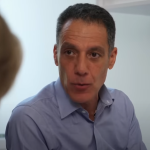The Future of Machine Learning at Palantir
Palantir is a software and services company that powers some of the most important institutions. These span government, healthcare, finance, media, and a variety of other industries. This diversity of applications leads to a diversity of machine-learning methods and systems used to tackle them. We give an overview of past and current machine learning work at Palantir, then dig into a few of these in more depth. These problems include inventory prediction optimization, healthcare fraud, and customer lapse modeling for news / insurance companies. The techniques we cover include graph-based methods, quantile regression, a variety of unsupervised and anomaly-detection methods. Propensity-modelling is recast as a binary-classification problem using a new spark-backed product called Taiko. We discuss the problems encountered in building and applying this product, and feature interpretability.
Rahul Agarwal is a machine learning engineer at Palantir. He attended Stanford, and prior to joining Palantir he was building automated time-series modeling services at a startup called Grok in Redwood City. He originally thought he wanted to work on video games, and did some cool internships in the games industry, including a summer where he worked on the Microsoft Kinect. However, his true passion is in machine learning and AI, and he's excited to bring some of those skills to Palantir.
Matt Elkherj joined Palantir in 2014 as a software engineer and machine learning expert. At Palantir, he has focused on applications of machine learning techniques to customers insights in insurance, crime projection, and fraud detection. Prior to Palantir, Matt worked for Qualcomm, Inc. as a data scientist and at a startup in San Francisco that helps companies use data to gain insight into their customers. Matt holds a master’s in computer science from UC San Diego and a bachelor’s in mathematics and computer science from Dartmouth College.







